Description
ABSTRACT
Examining the Validity of the Taxes and Levies (Approved List For Collection) Act (Amendment) Order 2015
Professor Meshach Umenweke* and Kenneth Ezeibe*
This paper examines the validity or otherwise of the amendment of the schedule to the Taxes and Levies (Approved List for Collection) Act, as amended by the Amendment Order issued by the Minister of Finance of the Federal Republic of Nigeria in 2015. The paper traces the history of the Act and the Amendment Order. It expounds why and how the Act was made; and how the Amendment Order nay the Act by virtue of its substantive contents smack of unconstitutionality; multiplication and duplication of taxes and may still lead to more conflicts between tiers of government. It concludes with recommendations on how to improve government revenue generally, and without the Amendment Order. This is because in the opinion of the writers, dwindling revenue of the states and how to shore up same was the major reason for the Amendment Order. This paper is based on review and analysis of relevant legislations, case laws and other relevant literature on the topic.
Keywords: Taxes and Levies (Approved List for Collection) Act, Amendment Order, Government Revenue.
INTRODUCTION
Today, Nigeria is a federation of thirty six states with an autonomous Federal Capital Territory at Abuja.1 Nigeria is governed through three tiers of government, namely the federal, states and local governments. The Constitution of the nation spells out the jurisdiction and in general terms the taxing powers of each tier of government.2 As per the apportionment, content, collection and use of government revenue, the said Constitution sequestered the major sources of revenue of the nation including all revenues from the petroleum industry, which is the major source of revenue in Nigeria, to the federal government in Nigeria. Accordingly, the second and third tiers of government, namely the states and local governments depend to a very large extent on the monthly monetary allocation disbursed from the Federation Account for their income and maintenance. This harsh scenario came into existence sequel to the entry of the Nigerian military into government in the mid-sixties, and their unification of the country into a military type single command and control pseudo-federation which concentrated power and revenue at the centre. This scenario continued and at a time served the nation satisfactorily throughout the oil boom years of the seventies and eighties. Thus the three tiers of government depended mostly on the federation allocation supplied by oil revenue. Other available sources of revenue that are not oil industry based and related formed an infinitesimal proportion of the distributable revenue pool of the Federation Account. For example, most income taxpayers evade payment of tax and the different tiers of government were not even keen on collecting taxes.
Before the enactment of the Taxes and Levies (Approved List for Collection) Act3 in 1998, the distributable revenue of the Federation Account was generally enough to meet monetary
* Ph.D., BL. Notary Public and Professor of Law, Nnamdi Azikiwe University, Awka.
** LL.M, BL. Notary Public, Barrister and Solicitor, No 36 Ziks Avenue Awka.
- Section 3(1)-(6), CFRN 1999 (as amended).
- Section 4; Section Schedule Part I (Exclusive Legislative List); Part II (Concurrent Legislative List); Section 7 and the Fourth Schedule, CFRN 1999 (as amended).
- CAP T2 LFN 2004

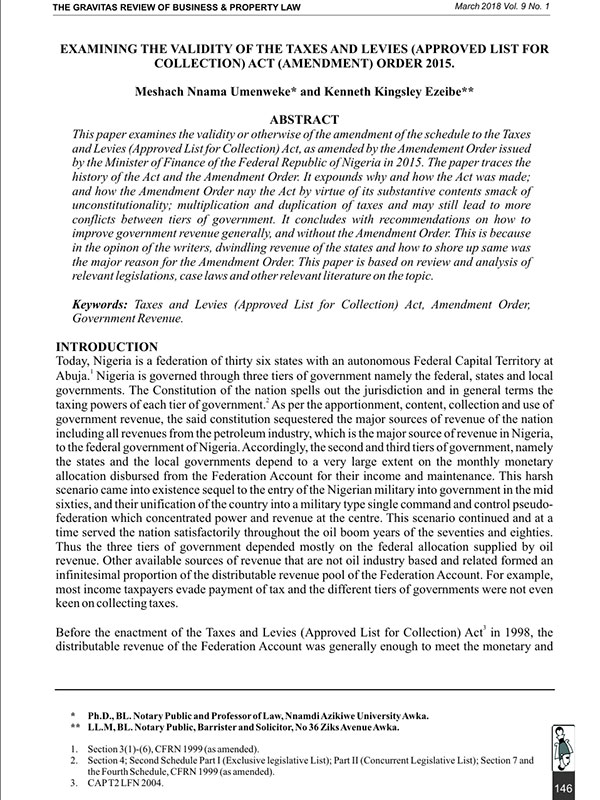
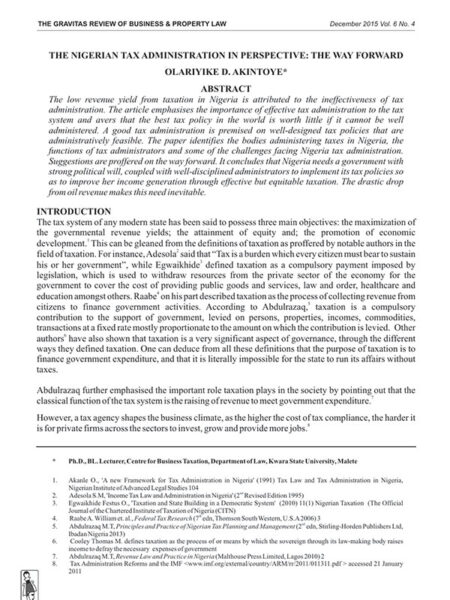
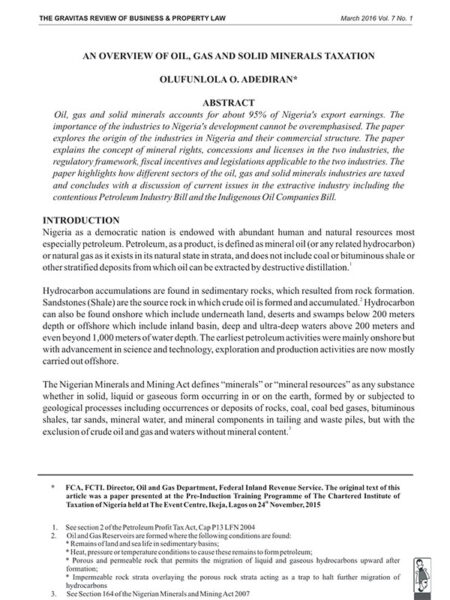
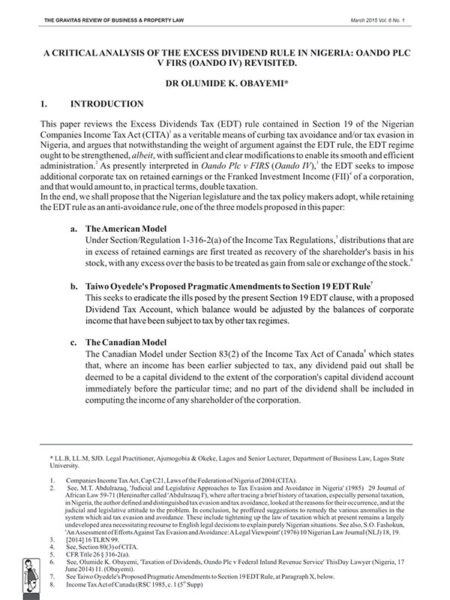
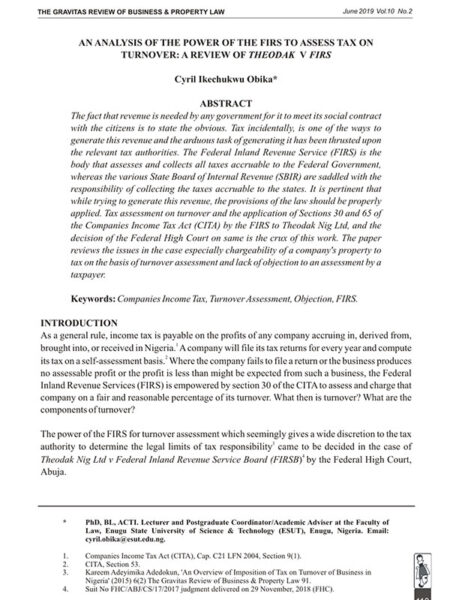


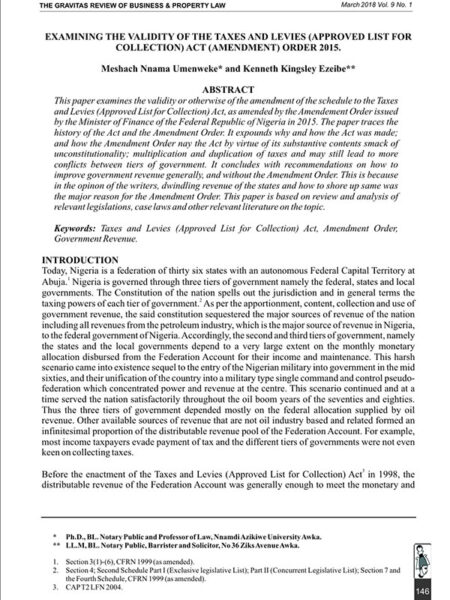
Reviews
There are no reviews yet.